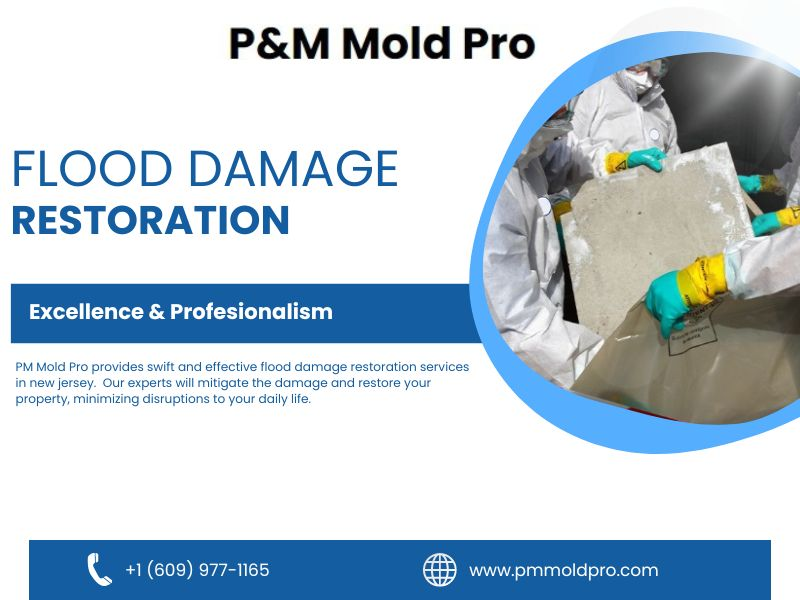Essential Steps for Effective Flood Damage Restoration in New Jersey
Floods can wreak havoc on homes and
businesses in New Jersey, leaving behind a trail of destruction. When disaster
strikes, it's crucial to have a well-thought-out plan for flood damage
restoration. In this blog, we'll walk you through the essential steps for
effective flood
damage restoration in New Jersey, ensuring that your property is
restored to its pre-flood condition.
Safety First: Before diving into any restoration efforts, prioritize safety. Ensure that the affected area is free from electrical hazards, structural damage, and contaminated water.
Assessment and Documentation:
Document the extent of the flood damage by taking photos and making detailed
notes. This information will be vital for insurance claims and tracking the
progress of restoration.
Water Extraction: Promptly remove
standing water using industrial-grade pumps and vacuums. The faster you extract
the water, the lower the risk of mold and structural damage.
Drying and Dehumidification:
Thoroughly dry the affected area using fans and dehumidifiers. This step is
critical in preventing mold growth, which can be a significant issue in
flood-damaged properties.
Mold Remediation: Perform mold
inspections and address any mold growth promptly. Mold can have serious health
implications and should not be underestimated.
Structural Repairs: This may
include repairing walls, floors, and ceilings, as well as ensuring the
structural integrity of the building.
Content Restoration: Clean and
restore salvageable belongings and possessions. Dispose of items that are
beyond repair responsibly.
Sanitization and Disinfection:
Thoroughly clean and disinfect all affected areas to ensure a safe and healthy
living environment.
Restoration and Reconstruction:
Finally, restore the property to its pre-flood condition. This may involve
repainting, retiling, and replacing damaged fixtures.
Preventative Measures: Consider flood-resistant
building materials and techniques to reduce the risk of future flood damage.
Conclusion:
Effective flood damage restoration in New Jersey requires a systematic approach, from initial assessment to final reconstruction. By following these essential steps and working with professionals experienced in flood damage restoration, such as PM Mold Pro, you can ensure that your property is not only restored but also better prepared for any future challenges.




Comments
Post a Comment